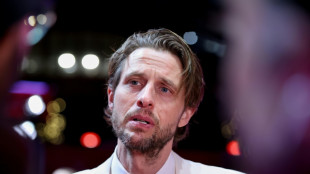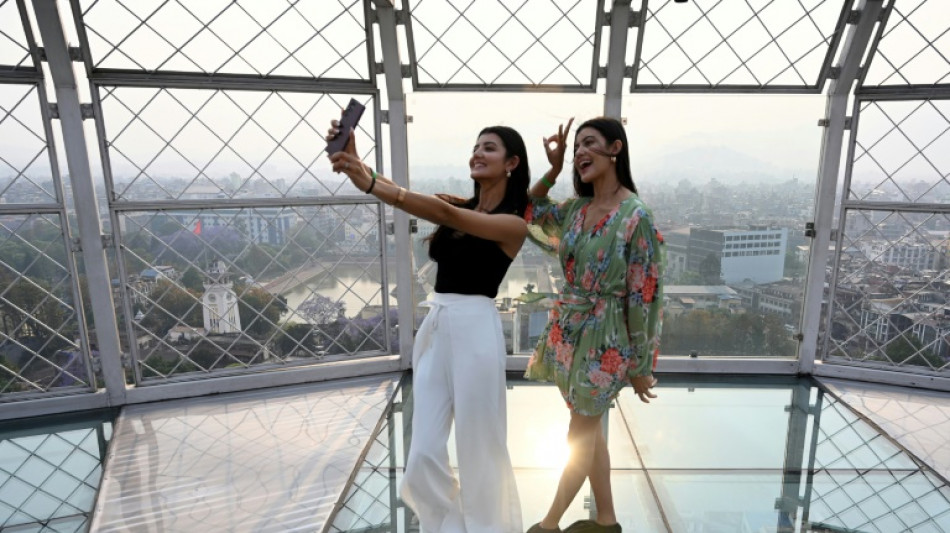
-
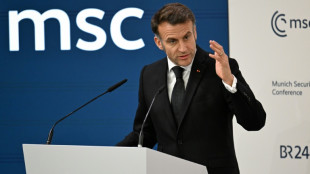 France's Macron urges calm after right-wing youth fatally beaten
France's Macron urges calm after right-wing youth fatally beaten
-
China's freeski star Gu recovers from crash to reach Olympic big air final

-
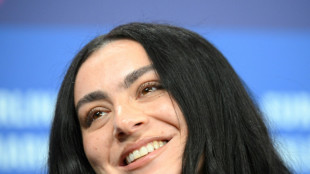 Charli XCX 'honoured' to be at 'political' Berlin Film Festival
Charli XCX 'honoured' to be at 'political' Berlin Film Festival
-
Relatives of Venezuela political prisoners begin hunger strike
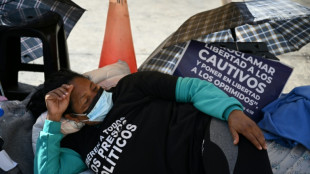
-
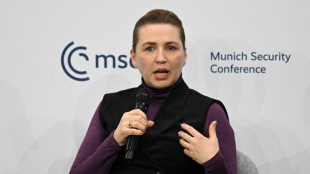 Trump's 'desire' to own Greenland persists: Danish PM
Trump's 'desire' to own Greenland persists: Danish PM
-
European debate over nuclear weapons gains pace
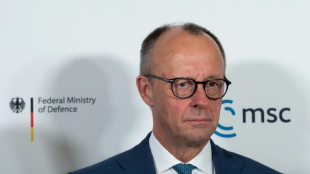
-
 Newcastle oust 10-man Villa from FA Cup, Man City beat Beckham's Salford
Newcastle oust 10-man Villa from FA Cup, Man City beat Beckham's Salford
-
Auger-Aliassime swats aside Bublik to power into Rotterdam final
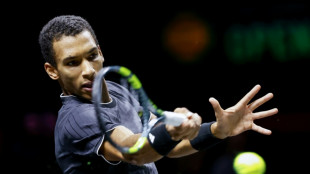
-
 French prosecutors announce special team for Epstein files
French prosecutors announce special team for Epstein files
-
Tuipulotu 'beyond proud' as Scotland stun England

-
 Jones strikes twice as Scotland end England's unbeaten run in style
Jones strikes twice as Scotland end England's unbeaten run in style
-
American Stolz wins second Olympic gold in speed skating

-
 Marseille start life after De Zerbi with Strasbourg draw
Marseille start life after De Zerbi with Strasbourg draw
-
ECB to extend euro backstop to boost currency's global role
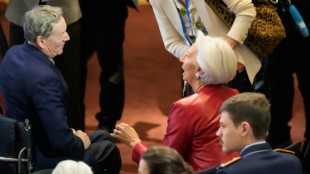
-
 Canada warned after 'F-bomb' Olympics curling exchange with Sweden
Canada warned after 'F-bomb' Olympics curling exchange with Sweden
-
Ultra-wealthy behaving badly in surreal Berlin premiere

-
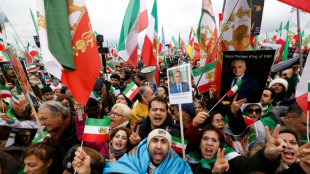 250,000 at rally in Germany demand 'game over' for Iran's leaders
250,000 at rally in Germany demand 'game over' for Iran's leaders
-
UK to deploy aircraft carrier group to Arctic this year: PM
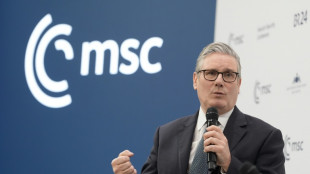
-
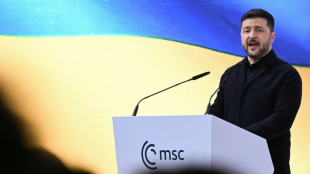 Zelensky labels Putin a 'slave to war'
Zelensky labels Putin a 'slave to war'
-
Resurgent Muchova beats Mboko in Qatar final to end title drought

-
 Farrell hails Ireland's 'unbelievable character' in edgy Six Nations win
Farrell hails Ireland's 'unbelievable character' in edgy Six Nations win
-
Markram, Jansen lead South Africa to brink of T20 Super Eights

-
 Guehi scores first Man City goal to kill off Salford, Burnley stunned in FA Cup
Guehi scores first Man City goal to kill off Salford, Burnley stunned in FA Cup
-
Swiss say Oman to host US-Iran talks in Geneva next week

-
 Kane brace helps Bayern widen gap atop Bundesliga
Kane brace helps Bayern widen gap atop Bundesliga
-
Ireland hold their nerve to beat gallant Italy in Six Nations thriller

-
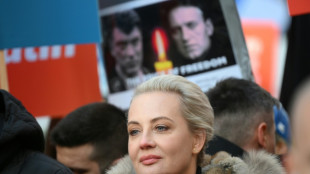 European states say Navalny poisoned with dart frog toxin in Russian prison
European states say Navalny poisoned with dart frog toxin in Russian prison
-
Braathen hails 'drastic' changes after Olympic gold
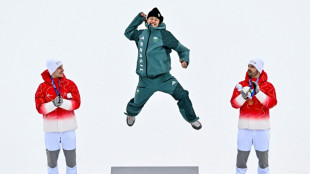
-
 De Minaur eases past inconsistent Humbert into Rotterdam final
De Minaur eases past inconsistent Humbert into Rotterdam final
-
Eurovision 70th anniversary live tour postponed

-
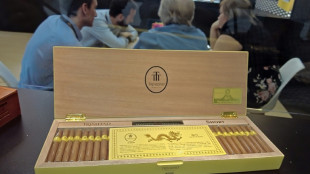 Cuba cancels cigar festival amid economic crisis
Cuba cancels cigar festival amid economic crisis
-
Son of Iran's last shah urges US action as supporters rally in Munich
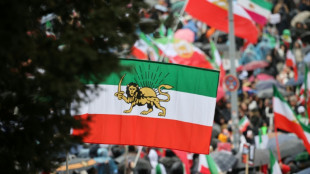
-
 Jansen helps South Africa limit New Zealand to 175-7
Jansen helps South Africa limit New Zealand to 175-7
-
Braathen wins unique Winter Olympic gold for Brazil, Malinin seeks answers

-
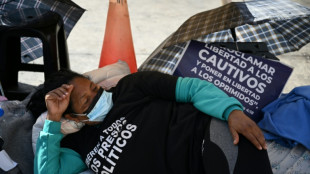 Relatives of Venezuela political prisoners begin hunger strike after 17 freed
Relatives of Venezuela political prisoners begin hunger strike after 17 freed
-
Ten-man West Ham survive Burton battle to reach FA Cup fifth round

-
 International crew set to dock at space station
International crew set to dock at space station
-
Suryakumar says India v Pakistan 'not just another game'
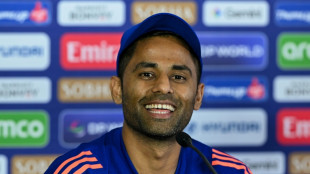
-
 Brazilian Olympic champion Braathen is his own man - and Norway's loss
Brazilian Olympic champion Braathen is his own man - and Norway's loss
-
About 200,000 join Iran demonstration in Munich: police
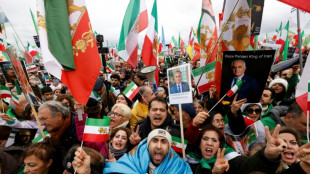
-
 Where did it all go wrong for 'Quad God' Malinin?
Where did it all go wrong for 'Quad God' Malinin?
-
Brazil's Braathen wins South America's first ever Winter Olympic gold

-
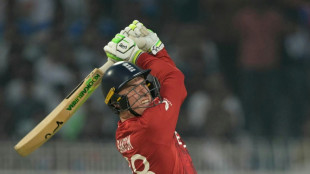 Banton powers England to victory over Scotland at T20 World Cup
Banton powers England to victory over Scotland at T20 World Cup
-
Zelensky says all Ukrainian power plants damaged, calls Putin 'slave to war'
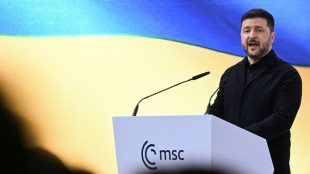
-
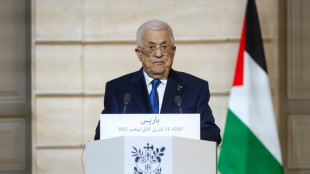 Palestinian leader urges removal of all Israeli 'obstacles' on Gaza ceasefire
Palestinian leader urges removal of all Israeli 'obstacles' on Gaza ceasefire
-
Igor Tudor hired as Tottenham interim manager
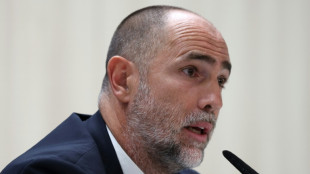
-
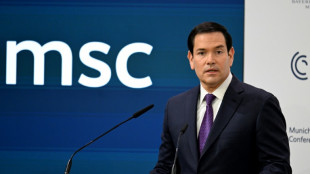 Rubio tells Europe to join Trump's fight, says it belongs with US
Rubio tells Europe to join Trump's fight, says it belongs with US
-
Winter Olympians have used 10,000 condoms
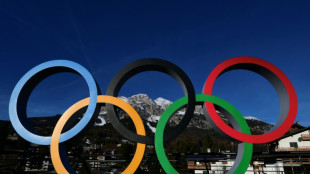
-
 Weston's skeleton Olympic gold a triumph over adversity
Weston's skeleton Olympic gold a triumph over adversity
-
England bowl Scotland out for 152 in T20 World Cup


Nepalis fight TikTok ban in court, or ignore it entirely
When Nepal suddenly announced a ban on TikTok last year, lawyer Sunil Rajan Singh was determined to fight what he said was a government effort to hide its wrongdoings.
The hugely popular video-sharing platform has faced restrictions in several countries for allegedly breaking data rules and for its supposed harmful impact on youth.
Last week the United States became the latest nation poised to ban the app outright, unless Chinese parent company ByteDance agrees to divest it.
Efforts to restrict access to TikTok have prompted vocal opposition wherever they have been attempted but especially so in Nepal, where the platform had been used to mobilise anti-government demonstrations.
Some Nepalis have skirted the ban entirely by accessing TikTok via virtual private networks (VPNs), which use a remote connection that obscures their location. Others like Singh are determined to fight.
"The government's move is against freedom of speech and expression guaranteed by Nepal's constitution," said the attorney, who is leading a legal challenge to the ban in the Himalayan republic's top court.
"On TikTok the public would learn about corruption, financial embezzlement and other immoral activities of leaders," he told AFP. "That was not helpful for the government."
Nepal's communications minister justified last November's ban by accusing the platform of spreading content that damaged the country's "social harmony".
The announcement came days before a huge rally called by a prominent businessman who was using TikTok to organise a campaign demanding the reinstatement of Nepal's monarchy.
The case before the Supreme Court is due to be heard next week with a decision expected later this year.
TikTok is one of the most popular social media platforms on the planet with more than one billion users.
Its explosive growth has given its content creators and influencers an immense audience, and its editing features and AI-powered algorithm have proved particularly attractive.
But the platform has also been blamed for spreading disinformation, and ByteDance's alleged ties to the Chinese government have prompted alarm in foreign capitals.
Multiple countries have sought to tighten controls on TikTok, and it was banned about four years ago in neighbouring India.
AFP, along with more than a dozen fact-checking organisations, is paid by TikTok to verify videos that potentially contain false information.
- 'TikTok gave us hope' -
Nepal's ban was condemned not just by free speech advocates like Singh but the owners of popular accounts whose lives were transformed by the platform, which had about 2.2 million users in the country.
Sangmo Bomjan, 28, was running a lucrative business reselling children's clothes on the platform that began when the Covid-19 pandemic put her husband out of work, saving her household from financial ruin.
"We were worried, but TikTok gave us hope," she told AFP.
Orders kept the couple busy packing clothes even at night to deliver across the country, and they were able to earn more than $2,000 every month.
After the ban, Bomjan used a VPN to keep posting videos to her account, circumventing the block on TikTok imposed by local internet service providers.
But her orders have shrunk to less than half of what they were before the ban and her videos get a fraction of their earlier viewers.
"They do not reach my customers in remote areas. They don't know how to use VPNs," she said.
The collapse in her earnings prompted her husband to migrate to South Korea, sending back money to support Bomjan and their two children.
- 'So many people were earning' -
Industry workers told AFP last year that Nepal's TikTok ban had torpedoed a market worth an estimated $5 million each year for advertisers and content creators, and which was set to grow rapidly.
After joining the platform in 2018, twin sisters Prisma and Princy Khatiwada built a following of nearly eight million on TikTok with videos of their synchronised dance routines.
Their popularity has netted them endorsement deals and modelling contracts in music videos and advertisements.
Both sisters still post to their individual accounts but their recent videos have been watched just tens of thousands of times on average -- miniscule compared to the 70 million views one of their biggest viral hits got before the ban.
"Where we stand today is because of TikTok... so many people were earning and getting opportunities through it," Prisma told AFP.
"We are hopeful that the ban will be lifted."
L.Durand--AMWN
